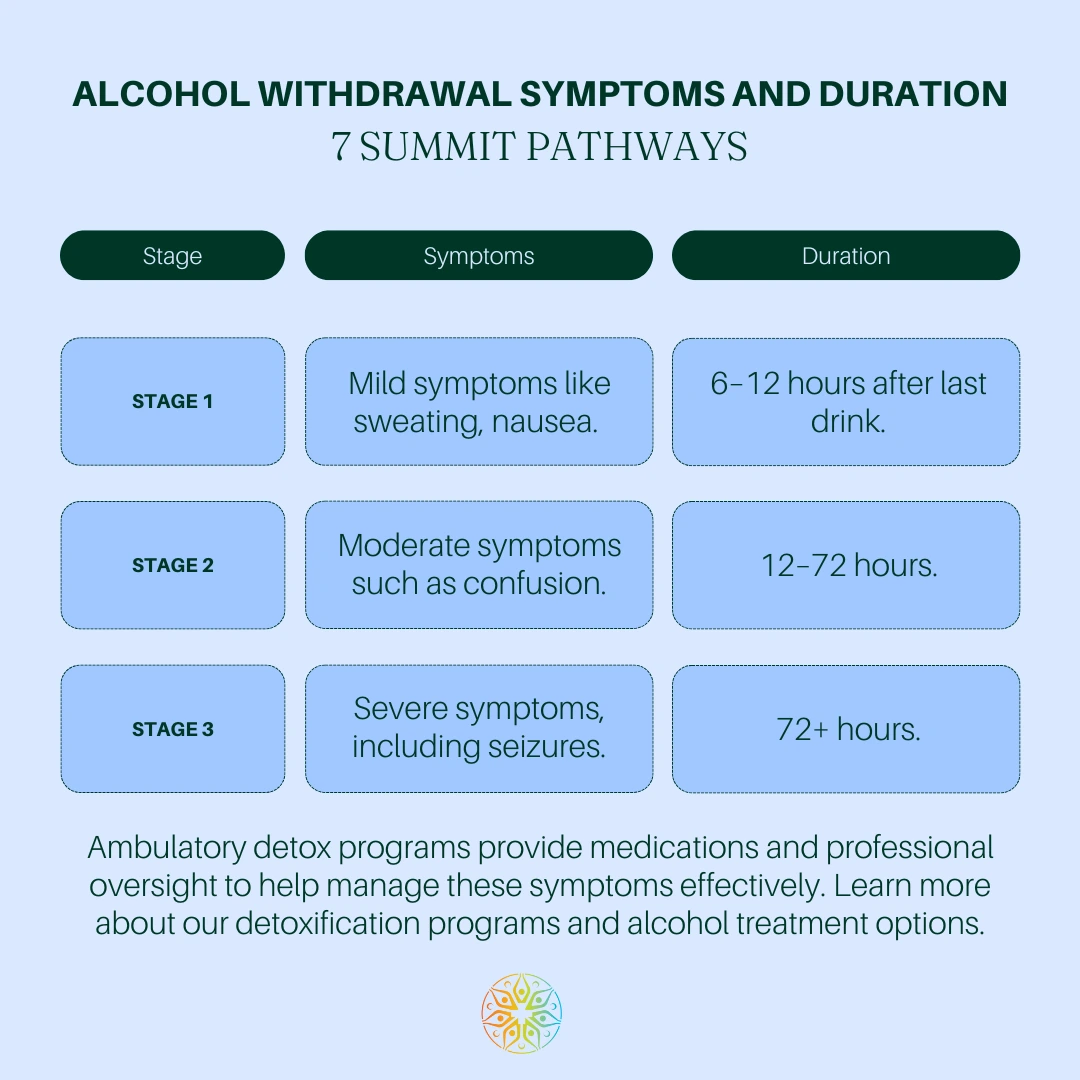Navigating the path to recovery can feel overwhelming, but innovative approaches like ambulatory detox are making it more accessible than ever. This flexible and convenient option allows individuals to manage withdrawal symptoms while maintaining their daily routines, empowering them to take the first steps toward a healthier life. For many, the idea of receiving professional care without needing a hospital stay is both practical and reassuring.
But what exactly is ambulatory detox, and how does it work? Unlike traditional inpatient programs, this outpatient option provides medically supervised care tailored to fit your schedule. It’s especially effective for individuals with mild to moderate withdrawal symptoms or those who have a strong support system at home.
We’ll explore the ins and outs of ambulatory detox, including how it works, its benefits, potential risks, and what to expect after treatment. Whether considering this option for yourself or a loved one, you’ll find the clarity and support needed to make an informed decision.
What Is Ambulatory Detoxification?
Ambulatory detoxification is a structured outpatient program designed to help individuals manage withdrawal symptoms safely and effectively without requiring an overnight stay in a medical facility. This approach is ideal for individuals seeking flexibility while receiving professional medical care.
Key Features of Ambulatory Detox:
- Medical Supervision: Patients receive care from experienced healthcare providers during scheduled visits.
- Customized Plans: Treatment plans are tailored to the individual’s needs, ensuring safe and effective detoxification.
- Ongoing Monitoring: Regular check-ins with medical professionals allow for symptom management and medication adjustments.
FAQs
- What is ambulatory detox?
Ambulatory detox refers to a flexible outpatient program where individuals manage withdrawal symptoms under medical supervision without staying overnight. - What is outpatient detox?
Outpatient detox is another term for ambulatory detox, emphasizing its non-residential nature.
This type of detox is particularly suited for those with mild to moderate symptoms who have a supportive home environment. However, it’s important to consult a medical professional to determine if this option is appropriate for your needs.
Who Is Ambulatory Detox Best For?
Ambulatory detox can be life-changing for individuals who meet specific criteria. It’s a safe and effective way to begin recovery for those who:
- Experience mild to moderate withdrawal symptoms: Symptoms like nausea, anxiety, or tremors are manageable with outpatient care.
- Have a strong support system at home: Family or friends who can offer emotional and practical assistance are crucial for success.
- Are in stable mental and physical health: Individuals without severe medical conditions or co-occurring mental health issues are better suited for ambulatory detox.
However, it may not be appropriate for everyone. Individuals experiencing severe symptoms—such as seizures, hallucinations, or delirium tremens—require the 24/7 monitoring provided by inpatient detox programs. Those without a reliable support system at home may also find outpatient detox challenging.
If fear of judgment or stigma has held you back from seeking help, remember that recovery is a courageous and personal journey. Professional detox programs offer a safe, supportive, and non-judgmental environment to help you succeed.
The Process of Ambulatory Detoxification
Ambulatory detoxification follows a structured plan that ensures safety and effectiveness while allowing individuals to maintain their daily routines.
Step-by-Step Process:
- Initial Evaluation and Medical Assessment:
A comprehensive evaluation determines the severity of symptoms, substance use patterns, and overall health. This step ensures ambulatory detox is a safe option. - Creation of a Tailored Detox Plan:
Medical professionals design a personalized treatment plan, including medications, check-in schedules, and resources for support. - Daily or Weekly Check-Ins:
Regular visits allow healthcare providers to monitor progress, adjust medications, and address any challenges. - Medication Management:
Prescriptions, like benzodiazepines for alcohol withdrawal, help alleviate symptoms and reduce the risk of complications.
Key Differences From Inpatient Detox
- Ambulatory Detox: Flexible, cost-effective, and designed for individuals with mild symptoms.
- Inpatient Detox: Provides 24/7 care and is better suited for severe withdrawal cases.
This approach offers a practical way to manage withdrawal symptoms while maintaining independence, making it an attractive option for many.
Benefits of Ambulatory Detox
Choosing ambulatory detox offers several advantages for those seeking a safe and flexible recovery process:
- Convenience and Flexibility: Individuals can continue work, family, or personal responsibilities while receiving care.
- Cost-Effectiveness: Outpatient programs are typically more affordable than inpatient options.
- Maintaining Privacy: Detox in an outpatient setting allows individuals to recover discreetly, without the stigma sometimes associated with inpatient treatment.
These benefits make ambulatory detox a compelling option for individuals who meet the criteria.
Learn more about this approach by visiting our dedicated ambulatory detox page.
Challenges and Risks of Ambulatory Detox
While ambulatory detox provides many benefits, it’s important to acknowledge its challenges. Facing withdrawal symptoms can be physically and emotionally demanding, and certain risks must be managed carefully.
Key Challenges and Risks:
- Missed Medical Emergencies: Severe symptoms like delirium tremens can escalate quickly and require immediate medical attention.
- Lack of Constant Supervision: Success relies on discipline and commitment to treatment plans.
- Emotional Barriers: Fear of judgment, stigma, or the detox process itself can create hesitancy to begin treatment.
According to the National Library of Medicine, structured professional detox programs significantly improve outcomes by providing evidence-based care. Choosing a reputable program is essential for minimizing risks and ensuring safety.
Alcohol Withdrawal Symptoms and Duration
Understanding the timeline and symptoms of alcohol withdrawal can help reduce anxiety about the detox process.

Ambulatory detox programs provide medications and professional oversight to help manage these symptoms effectively. Learn more about our detoxification programs and alcohol treatment options.
What to Expect After Ambulatory Detox
Detox is just the beginning of recovery. After completing ambulatory detox, individuals should focus on continued care to sustain long-term sobriety.
Post-Detox Steps:
- Transition to Therapy: Address underlying issues through individual or group therapy.
- Engage in Support Groups: Build community and accountability through programs like AA.
- Follow-Up Care: Regular medical check-ins to monitor progress and address concerns.
- Adopt Healthy Habits: Incorporate exercise, nutrition, and mindfulness to support recovery.
For more insights on post-detox care, explore resources at 7 Summit Pathways.
Start Your Journey to Recovery
Ambulatory detox is a safe, flexible option that empowers individuals to take the first step toward recovery without compromising their daily lives. By providing professional support, personalized care, and convenience, it bridges the gap between independence and effective treatment.
Recovery is always possible. Contact 7 Summit Pathways today and let us help you take the next step toward a healthier, substance-free life. A brighter future starts here.

